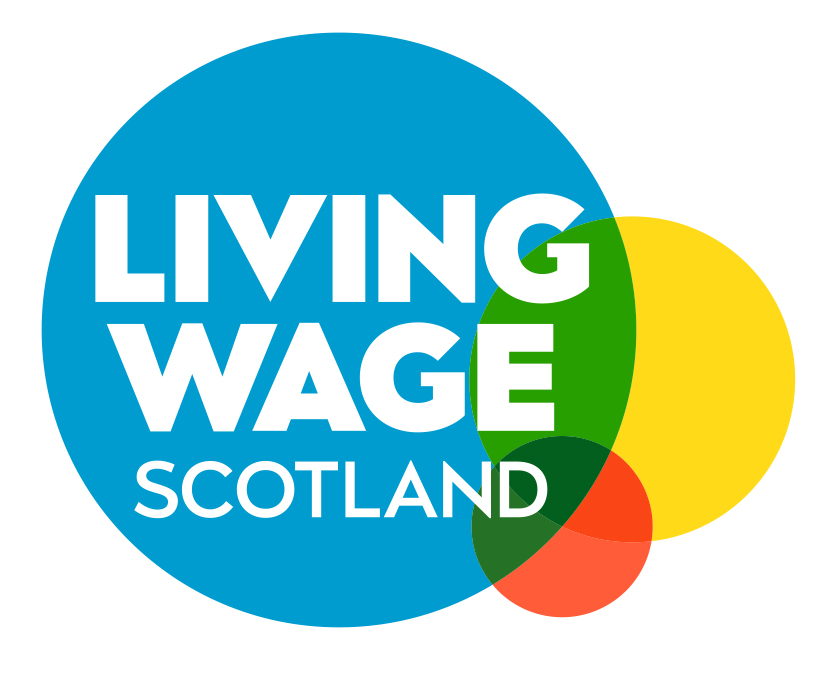By Christine McCaig, Living Wage Projects Coordinator, Living Wage Scotland
Employment should free people from the grip of in-work poverty however, the reality is that for many people, being in work does not guarantee financial security. As we begin our recovery from what has been one of the most testing times in recent history, we need to work together to redesign our employment landscape so that it delivers security for workers and their families.
Whilst the pandemic has shone an uncomfortably stark light on issues such as low pay and insecure work, we know these issues pre-exist Covid-19. Before the pandemic, 60% of working age adults were living in poverty and 65% of children in poverty were living in a household where someone was in employment (i). Covid-19 has only deepened these cracks within our society, pushing yet more people into the rising tide of in-work poverty.
As we inch closer to some level of normality, an important part of redesigning our employment landscape is to work with employers on actions that help tackle low pay and insecurity. This will help make sure that we don’t settle for a return to ‘business as usual’, because business as usual has been failing our workers for too long.
Living Wage Scotland have been working with Scottish based employers since 2014 on Living Wage employer accreditation, a scheme that celebrates employers who are committed to paying at least the real Living Wage. There is now a diverse and growing network of over 2400 Living Wage employers who have collectively uplifted over 52 thousand workers to the real Living Wage. What’s more, hundreds of these employers (33%) have made this voluntary commitment since the pandemic began, showing resilience, leadership and an eagerness to play their role in a fairer recovery.
While payment of the real Living Wage remains a fundamental part of the solution to in-work poverty, the shape of low-paid work has changed. The other side of the coin is the rise in precarious work (ii) which disproportionately affects our lowest paid workers in industries such as retail, health and social care (iii). The 2017 Taylor Review, commissioned by the UK Government raised concerns about the growth of ’one-sided flexibility’ that works for employers but creates insecurity for employees (iv). For example, casualised working arrangements such as zero and short hours contracts, temporary work and self-employment which have all increased since the 2008 financial crisis.
The Insecurity Complex, published by the Living Wage Foundation in July 2021 (v) revealed that in Scotland, 11% of workers are in Insecure work and earn below the Living Wage, that is 300,000 workers. Those who experience difficulty in securing the number of hours they need, combined with a lack of certainty over income from one month to the next find planning ahead incredibly challenging. Polling from the July report also found that 48% of Scottish shift workers receive less than a week’s notice for working hours shifts, or work schedules.
“I don’t know when I will be asked to work. Or how much money I will have at the end of the month for my family. It means I cannot plan, which is very stressful.”
–Security Guard
This is why we need to explore the practical ways which businesses can take action to help ensure our employment landscape is built on principles of fair work. To do this, the Living Wage Foundation have developed the Living Hours accreditation programme which offers a practical solution of what good practice looks like. Employers can adopt the Living Hours standard to help provide security and stability for their workers.
The programme builds upon the existing Living Wage accreditation. Employers who join the scheme commit to providing at least 4 weeks’ notice for every shift, with guaranteed payment if shifts are cancelled within this notice period. They also provide a guaranteed minimum of 16 working hours every week (unless the worker requests otherwise), and a contract that accurately reflects hours worked. These measures offer better security of contracts and hours, alongside a real Living Wage.
In Scotland, we have been delighted to welcome Edinburgh Dog and Cat Home, Dear Green Coffee Roasters, SSE, Standard Life Aberdeen and 1st Alliance Credit Union as Living Hours accredited employers. We have also been encouraged by the appetite among our Living Wage employer network in Scotland to work with us on further measures to become fairer, more progressive employers.
The most successful organisations in a modern economy will be those with a well-engaged workforce that is supported to perform to the best of its ability. Employers who see their staff as an investment will be the ones who benefit from a more motivated and committed workforce. We have a collective responsibility to use this challenging time to create the just and compassionate society we all want to live in. As a contribution to that end, I am very much looking forward to working with more employers in Scotland to explore Living Hours alongside the real Living Wage to ensure that more workers achieve financial stability at a time when they need it most.
[i] Poverty in Scotland – Poverty & Inequality Commission (povertyinequality.scot)
[ii] Almost Two-Fifths of Working Adults Given Less Than a Week’s Notice of Working Hours | Living Wage Foundation
[iii] Living Hours Final Report (2019) (livingwage.org.uk)
[iv] Taylor M (2017) Good Work: The Taylor Review of Modern Working Practices
[v] The Insecurity Complex : Low Paid Workers and the Growth of Insecure Work

